President Hassan Rouhani met with 24 Iranian reformists on October 3, a meeting that was considered long overdue given the range of criticism he has faced from the disparate group of politicians and activists.
As a rule, reformists support Rouhani — although the umbrella term suggests a greater level of unity than is actually the case. Several reformists have complained about and criticized Rouhani, particularly throughout his second term, during which they say he has adopted a more conservative stance. As evidence they have pointed to the fact that figures like Mohammad Bagher Nobakht, the head of the Planning and Budget Organization, and the president’s chief of staff Mahmoud Vaezi — both who have close links to conservative and principlist camps in Iranian politics — have gained the upper hand in his administration.
In fact, the absolute majority of the people Rouhani chose to invite to the meeting were members of the establishment or government officials, attracting further criticism from young reformists. In recent months, more than 100 young reformists also criticized the Supreme Reformist Policymaking Council.
To address these criticisms, Rouhani added three of the young activists — Emad Bahavar, head of the youth wing of the Freedom Movement of Iran, and the journalists Parastoo Sarmadi and Mehdi Shirzad — to his guest list, although Emad Bahavar was informed he should attend the meeting in his personal capacity, and not as a representative of the Freedom Movement.
In the end, however, none of the three attended the meeting with Rouhani and, with the exception of the journalist Mohammad Ghouchani, none of the other attendees were particularly young. Also absent was any representative from the Sunni community, although former MP Marouf Samadi and Abdolkarim Hosseinzadeh, a current member of the parliament from West Azerbaijan, who are both Sunnis, are members of the Supreme Reformist Policymaking Council.
Among the prominent progressive members from the reformist council in attendance were Mohsen Aminzadeh, a former diplomat and a founding member of the largest reformist party, the Islamic Iran Participation Front, human rights activist Mostafa Moeen, a former minister of science and a three-term member of the parliament, and Esmail Gerami Moghadam.
So who were the 24 reformists who met with President Rouhani?
1. Mohammad Reza Aref: Accused of Silence and Undue Caution
Mohammad Reza Aref was the First Vice President for the reformist president Mohammad Khatami (1997-2005) and is now leader of the reformist Hope Faction in the parliament. However, his performance in the parliament has come under intense fire from critics, who accuse him of being too silent and practicing too much caution. The business activities of his son Hamid Reza Aref have also attracted widespread criticism on social media. In an interview in 2017, the son created a scandal by claiming that his success was due to the “good genes” he had inherited from his parents.
2. Hossein Marashi: Wisecracker
Hossein Marashi is the speaker for the reformist Executives of Construction Party and a cousin to Effat Hashemi, the wife of the deceased former president Akbar Hashemi Rafsanjani. Over the last 30+ years, he has held several government positions, including the head of the Cultural Heritage and Tourism Organization, governor of Kerman province and President Rafsanjani’s chief of staff. From 1996 to 2004 he represented Kerman in the parliament and was a founder of Mahan Air, which the US Treasury put on its sanction list in July 2018 for violating international laws by ferrying arms and reinforcements to groups including Hezbollah and Hamas.
Marashi is a harsh critic of Mohammad Bagher Nobakht, the head of the Planning and Budget Organization. In 2010 he was sentenced to one year in prison for criticizing the way reformist activists were treated after the disputed 2009 presidential election. He was released in January 2011, having served around 10 months of his prison term.
Marashi has a reputation among Iranian politicians for being a wisecracker.
3. Mohammad Javad Fathi: The Despairing Member of Parliament
Mohammad Javad Fathi is a member of the Omid Faction. In June, he offered his resignation from the Iranian parliament because, he said, there is no hope for change in the current system. He said that he would explain his reasons fully when the parliament holds a session to deliberate on his resignation, but the session has yet to be held.
Fathi is one of the main sponsors of a bill aimed at “a general amnesty or reducing sentences” for crimes excluding murder. It is questionable whether the Iranian parliament would pass such a bill and even if it does, the bill must be approved by the Guardian Council, an unlikely prospect.
4. Davoud Mohammadi: Rather Relaxed
Over the last three years, Davoud Mohammadi has served as the chairman of the parliament’s Article 90 Committee. Article 90 of the Iranian constitution states: “Whoever has a complaint concerning the work of the legislature, the executive, or the judiciary can forward his complaint in writing to the parliament. The parliament must investigate his complaint and give a satisfactory reply. In cases where the complaint relates to the executive or the judiciary, the parliament must demand proper investigation in the matter and an adequate explanation from them, and announce the results within a reasonable time. In cases where the subject of the complaint is of public interest, the reply must be made public.”
This is not a trivial responsibility and yet over the last three years Mohammadi has not been heard from much, neither in the parliament nor on the political scene in general.
Before being elected to the parliament, Mohammadi was a judge and, prior to that, he held various positions in the judiciary.
5. Mohsen Hashemi: The Conservative Heir to President Rafsanjani
Mohsen Hashemi is the most conservative son of President Hashemi Rafsanjani. He was the deputy director of Islamic Azad University for four years and was chairman and CEO of Tehran Metro for 13 years. In 2013 he ran for the mayor of Tehran but lost to Mohammad Bagher Ghalibaf. In 2017, reformists again considered putting him forward as their candidate but later changed their minds. He is now the president of Tehran City Council.
6. Ali Shakouri-Rad: Doubts Rouhani can solve the crisis
Ali Shakouri-Rad, a medical doctor and a former member of the parliament, is the secretary general of the Union of Islamic Iran People Party and a member of the Central Council of the Islamic Iran Participation Front, both of which are reformist entities.
He supported Mir Hossein Mousavi in the 2009 presidential election and was arrested in 2010 after he gave an interview to BBC Persian criticizing the election process. He was charged with “propaganda against the regime” and “spreading lies” but he had friends in high places and was released on bail after 48 days when, reportedly, Grand Ayatollah Moussa Shubairi Zanjani pleaded his case with the Supreme Leader Ayatollah Khamenei.
In June, following President Trump’s announcement that the United States was leaving the nuclear agreement and re-imposing sanctions in Iran, Shakouri-Rad voiced doubts about the ability of President Rouhani to cope with the ensuing crisis. Since it is the Supreme Leader who is the center of policymaking in Iran, he said, then it is only the Supreme Leader who can come up with a solution.
7. Abdolvahed Mousavi Lari: “Flawed” Elections
Abdolvahed Mousavi Lari is a Shia cleric and was the interior minister under the reformist president Mohammad Khatami. In 2005, while he was interior minister, he faced criticism from fellow reformist Mehdi Karroubi and Akbar Hashemi Rafsanjani for the “flawed” presidential election that handed Mahmoud Ahmadinejad a second term as president. Nevertheless, he is considered an effective member of the Supreme Reformist Policymaking Council and of the left-leaning Association of Combatant Clerics.
8. Ebrahim Asgharzadeh: An Occupier of the American Embassy
Ebrahim Asgharzadeh was one of the main organizers of the occupation of the American Embassy in Tehran on November 4, 1979 that led to what became known as the hostage crisis. However, later he became an advocate for improving relations with the United States and of democratic reforms in Iran.
He has, however, also been a critic of the performance of reformist Tehran mayors and was accused by reformists of turning people off from voting. In response, Asgharzadeh has accused reformists of indifference toward social justice and the needs of lower-income groups, calling it the “Achilles’ heel” of the reformists.
9. Majid Ansari: Friend to Khomeini’s Family
Cleric Majid Ansari is a close associate of Ayatollah Khomeini’s family. He was one of President Rouhani’s vice presidents, working first on parliamentary affairs and then for legal affairs. He is a member of the reformist Association of Combatant Clerics.
From 1980 to 2004 he represented Kerman in the parliament and he is now a representative to the Assembly of Experts and a member of the Expediency Council, although in December 2015 he was disqualified from running for the Guardian Council.
Ansari is considered a reformist now, but in the 1980s he became the first president of Iran’s Prisons Organization and openly supported Sadegh Khalkhali, the infamous post-revolutionary “hanging judge.”
10. Zahra Shojaei: “Soft” Women’s Rights Advocate
Zahra Shojaei was President Khatami’s advisor in women's affairs from 1997-2005 and it was she who suggested her deputy Shahindokht Molaverdi to President Rouhani for the same job. Although Shojaei remains close to Khatami and the reformists, she has never been very active on the political scene. She is secretary general of the Reformist Women’s Party and has played a role behind the scenes in recommending women for government positions. In public she has not been a vocal activist for women’s rights.
11. Zahra Sadr-Azam Nouri: The First Woman Mayor
In 1996 Zahra Sadr-Azam Nouri was appointed by Gholamhossein Karbaschi, Tehran’s mayor from 1990 to 1998, as the mayor of Tehran's 7th municipal district, the first woman to hold office as mayor. She holds a PhD in environmental management, is now a member of Tehran City Council and heads its Health, Environment and Urban Services Committee. Nouri is also a member of the Reformist Women’s Party.
12. Azar Mansouri: Women’s Rights Activist
Azar Mansouri was the vice chair of the reformist Islamic Iran Participation Front. When the front was banned in 2010, she joined the Union of the Islamic Iran People Party. She was arrested in the aftermath of the 2009 presidential election and spent a few months behind bars. Her speeches and interviews have been attacked for their criticism of the reformists. “Regardless of whether our party activists are reformists or principlist, they do not care about political participation by women,” she said in 2015.
Mansouri was an activist for the One Million Signatures Campaign for the repeal of discriminatory laws against women.
13. Morteza Haji: Always Criticized
Morteza Haji was head of Mohammad Khatami's presidential campaign in 1997, and served as the president's minister of cooperatives and then his Minister of Education. He was also the director Rouhani’s presidential campaign in 2017. Despite the fact that he has often been a target of criticism by the reformists no matter what position he has held, in most elections he has worked on the campaigns of reformist candidates to the point that he has become a fixture in reformist campaigns. He is currently the managing director of Hamshahri, a publishing house owned by Tehran Municipality.
14. Mohammad Javad Haghshenas: A Mayor Maker
Mohammad Javad Haghshenas was Deputy Minister of Culture and Islamic Guidance under President Mohammad Khatami. Later, he was the managing editor of the now-banned Etemad-e Melli, the newspaper of a party by the same name led by Mehdi Karroubi, the reformist candidate in the 2009 presidential election who has been living under house arrest for many years.
Haghshenas was elected to Tehran City Council in 2017. He and other members of the council from the Etemad-e Melli Party succeeded in electing Mohammad-Ali Afshani, one of their own, as Tehran’s mayor.
15. Javad Eta’at: TV Fame
Javad Eta’at, a professor of political science, was the Director General of Interior Ministry’s Center for Studies under President Khatami and served one term as a representative to the parliament. But he owes his fame to a TV debate against Alireza Zakani, a principlist member of the parliament, in early 2010 regarding the protests in the aftermath of the 2009 presidential election.
Eta’at was a member of Karroubi’s Etemad-e Melli Party but in the 2009 election, he threw his support behind Mir Hossein Mousavi.
16. Sadegh Kharrazi: Khatami and Khamenei Connections
Sadegh Kharrazi, a former diplomat, has not always been a reformist, but he has close relations with former president Khatami and other reformists, including former Tehran mayor Gholamhossein Karbaschi. He is also brother-in-law of Masoud Khamenei, Ayatollah Khamenei’s son. Under President Rafsanjani, he was Iran’s ambassador to the United Nations. In 2002 President Khatami appointed him as the ambassador to France and he served in this position until 2006.
In 2014, Kharrazi founded the Iranian Neda Party, the first reformist party formed after the crackdown that followed the 2009 presidential election. Most of the members of this party come from the youth wing of the banned Islamic Iran Participation Front.
17. Mohammad Naeimipour: From the US Embassy to Dams
Mohammad Naeimipour was one the “Muslim Student Followers of the Imam's Line” who in 1979 occupied the US embassy in Tehran. Under presidents Hashemi Rafsanjani and Khatami he was in charge of building dams. From 2000 to 2004 he served as Tehran’s representative in the parliament. He was also the founder of Yas-e No, a newspaper that unofficially spoke for the Islamic Iran Participation Front until it was banned after the 2009 presidential election.
18. Hossein Kamali: Workers‘ Rights
From 1989 until 2001, under presidents Hashemi Rafsanjani and Mohammad Khatami, Hossein Kamali held the post of Minister of Labor and Social Affairs. He is currently Secretary General of the reformist Islamic Labor Party. The party's platform leans more toward modernization and economic growth rather than social justice for workers.
19. Ali Rabiei: The Intelligence Connection
Ali Rabiei, a former commander of the Revolutionary Guards, was the Minister of Cooperatives, Labor and Social Welfare under President Rouhani from 2013 to 2018 until he was impeached and removed by the parliament. His close relations with Rouhani started when Rabiei served as the head of the propaganda committee for the Supreme National Security Council under Rouhani from 2002 to 2005. For years he served as the deputy intelligence minister and he is often referred to by his codename “Emad.”
20. Safdar Hosseini: The “Astronomical” Payroll Scandal
Safdar Hosseini was Minister of Labor and Social Affairs and Minister of Economic Affairs and Finance under President Khatami. He was President Rouhani’s Chairman of the National Development Fund until July 2016 when he was forced to resign following the outbreak of the so-called “astronomical” payroll scandal, when the pay slips of top managers at the state insurance company were leaked to the media, showing they were receiving very generous salaries.
As well as having close relations with Khatami, Hosseini has also been close to Mehdi Karroubi.
21. Hamidreza Jalaeipour: Ready for War
Hamidreza Jalaeipour is an academic, a journalist and a member of the Central Council of the reformist Islamic Iran Participation Front. During the presidency of Mohammad Khatami, he was the managing editor of newspapers including Jame’eh and Nosazi.
Three of Jalaeipour’s brothers were killed in the 1980-1988 Iran-Iraq War and he is well known for his attacks on groups that oppose the Islamic Republic. In 1983, when he was the governor of the Kurdish town of Mahabad, 59 young Kurds were executed in one day. He has denied responsibility but in 2014 a group of Kurds submitted a complaint against him to the International Criminal Court at the Hague (PDF).
Some of his recent statements have also made the news, including his verbal attacks on the nationwide protests in December 2017 and early January 2018 and his announcement that “If Iran is threatened, I will go to the front under the command of Ayatollah Khamenei.”
22. Mostafa Kavakebian: The Party of “Small Brother”
Mostafa Kavakebian, a member of the parliament from Tehran, has always been a critic of the Islamic Iran Participation Front, the largest reformist party, calling it the party of “big brother.” He and a group of other reformists, including members of the Islamic Iran Solidarity Party, criticized the Participation Front for denying them a role in power politics or any share of government jobs.
Kavakebian is known for his habit of shouting loudly during parliament sessions. He is the secretary general of the Democracy Party and its only prominent figure in the party.
23. Mohammad Ghouchani: The Young One
As a young man, Mohammad Ghouchani made a name for himself by writing for reformist publications. He was, and is, editor in chief of many of them, including Etemad-e Melli, Ham Mihan and Irandokht. He played his part in the tumultuous politics of reformism in the Islamic Republic but later he became less confrontational and joined the reformist Executives of Construction Party, founded in 1996 by 16 members of President Rafsanjani’s cabinet. The party supports free markets and industrialization and although it declares that economic development cannot be achieved without cultural and political freedom, it believes that the latter should not be allowed to hinder the former.
24. Zhaleh Faramarzian: The Journalist Pretender
Despite the fact that Zhaleh Faramarzian has always been a government functionary and never a journalist, she is currently the secretary of Iran’s Association of Women Journalists, a group that is mostly absent from the public space. Under President Mohammad Khatami, she worked for the Interior Ministry’s Deputy in Cultural Affairs and is now a Deputy Ministry of Sport and Youth. In August she travelled to Indonesia to watch the 2018 Asian Games at the government’s expense and, because she was there only as a spectator, it did not escape the attention of critics on social media.
Related coverage:
Reformists Must Stop Being Cowardly and Dangerous, July 29, 2018
The Iranian Reformists Need Reforming, July 19, 2018
People Have Left the Reformists Behind, January 2, 2018
Why Reformists Do Not Empathize with the Protesters, January 2, 2018
Nepotism? Nah, “Good Genes”!, September 2, 2017
Reformists Should be Brave and Challenge Hypocrisy — But They Won’t, May 15, 2017
The Lessons of History, April 20, 2017
, November 17, 2016
visit the accountability section
In this section of Iran Wire, you can contact the officials and launch your campaign for various problems




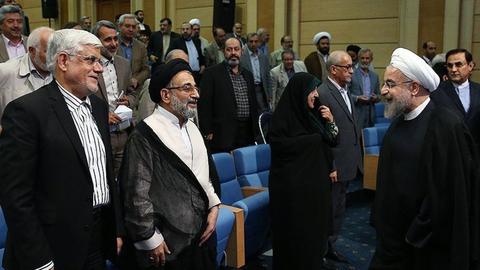

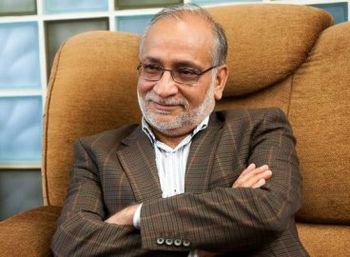
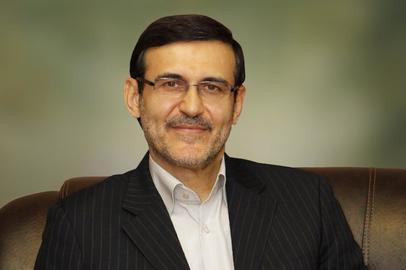

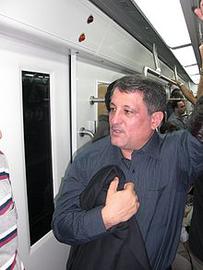
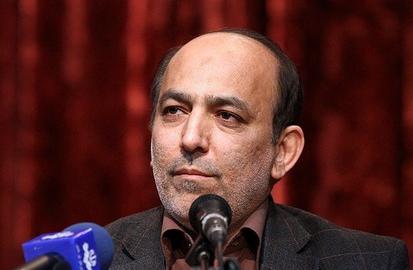
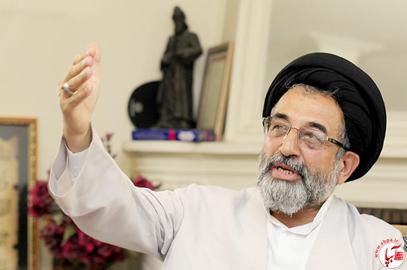
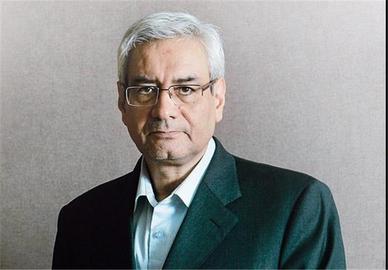

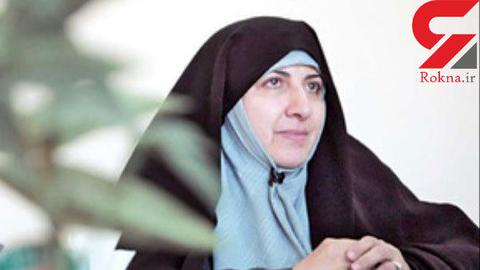
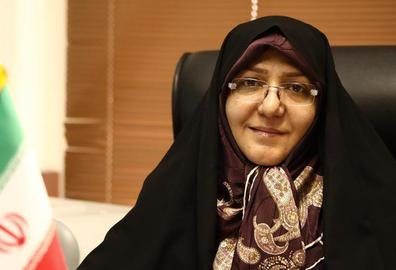

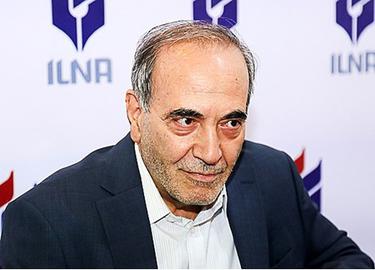
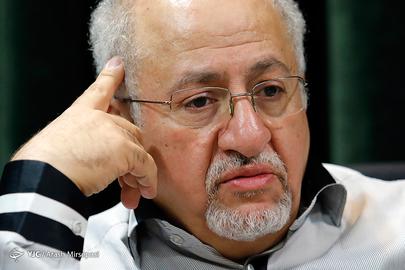
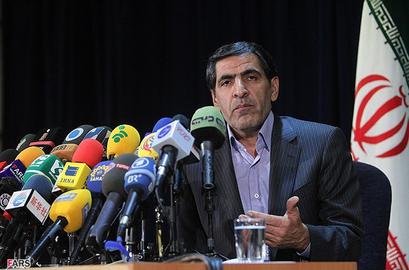
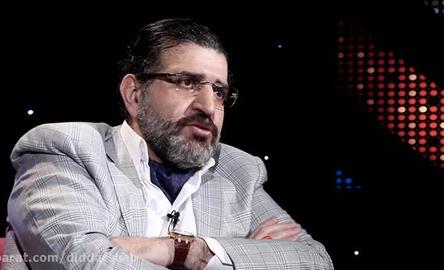
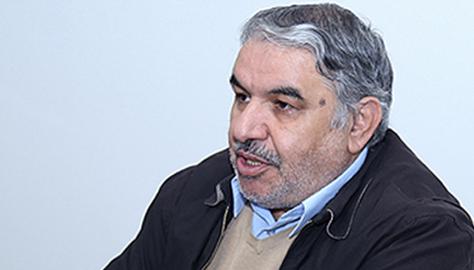
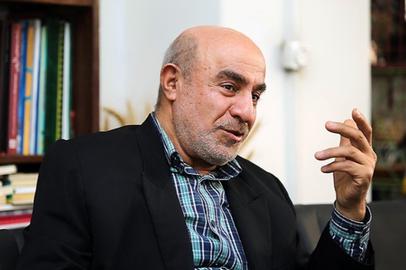
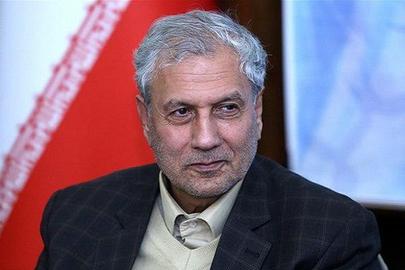
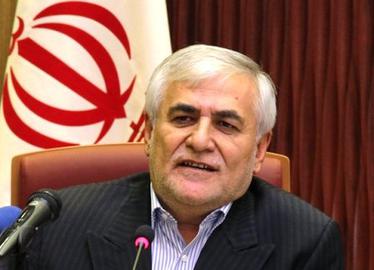
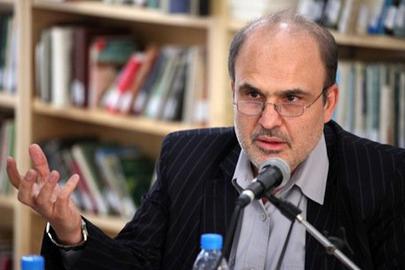
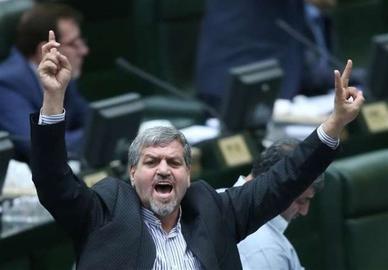
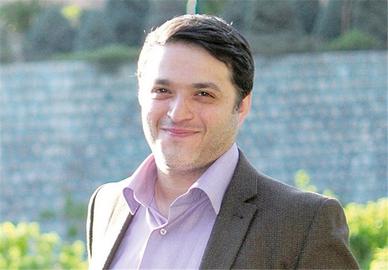
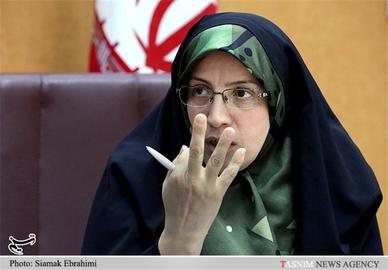



















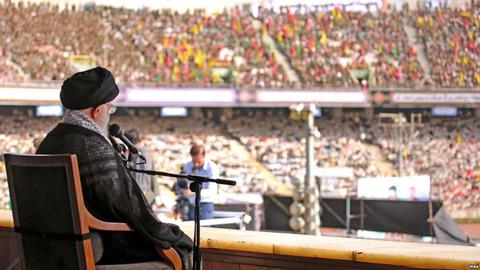
comments